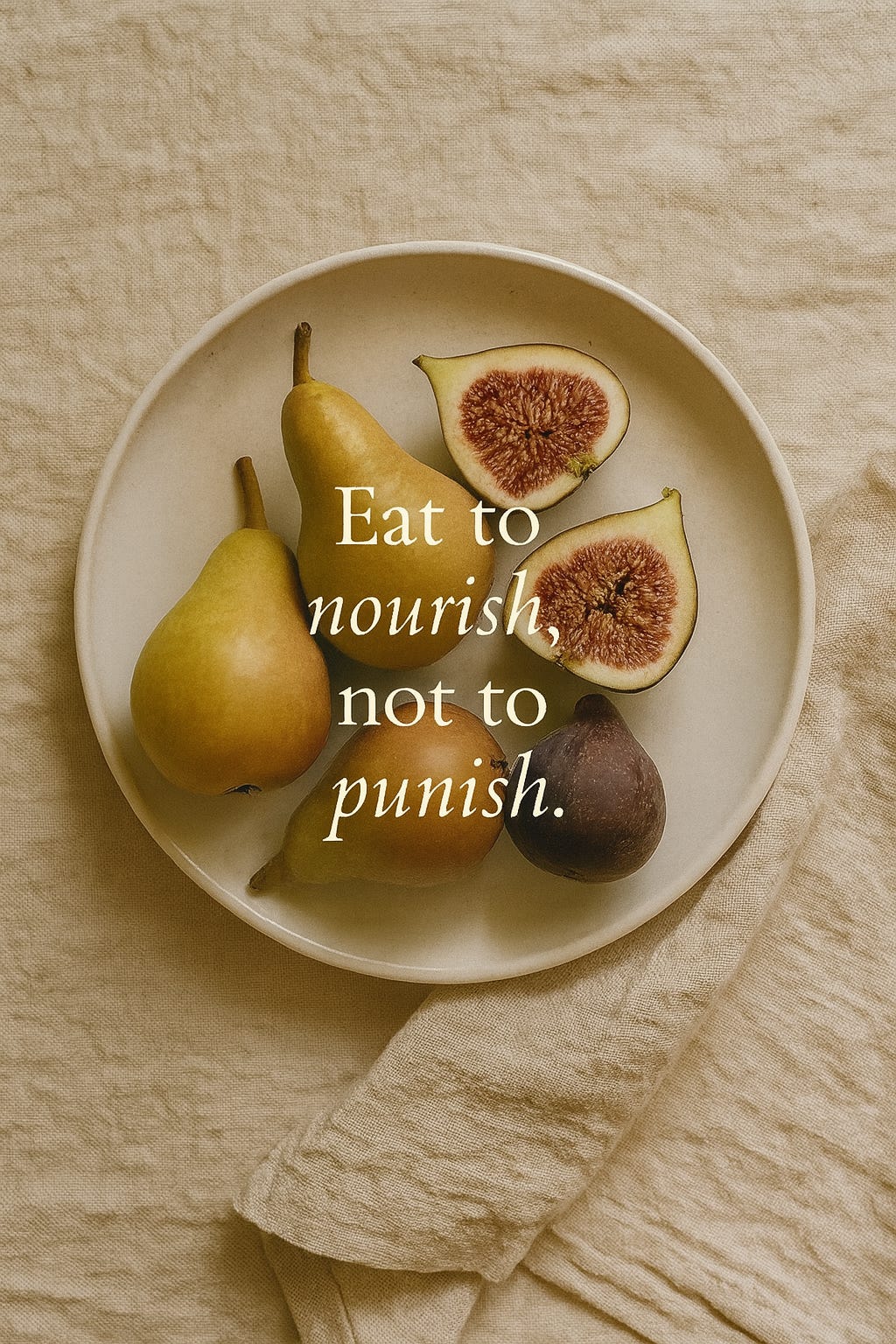The Fasting Fix? Why it works, and why it doesn't?
Intermittent fasting decoded: the benefits, the backlash, and why it’s not a one-size-fits-all solution.
Once upon a time, diet culture was the ultimate trendsetter. From Beyoncé’s maple syrup cleanse to the infamous Atkins era, we’ve seen it all. But while the players may have changed—from plant-based to carnivore—the game hasn’t. Food tribes still divide us, with certain ingredients prized as heroes, while others are demonised.
It’s no wonder so many of us frown at the word diet. It usually signals a long list of restrictions we quietly suspect we won’t stick to, and a plate full of bland vegetables that speak little to the taste buds.
I’m not here to dissect every diet trend and declare a winner. As a lifelong foodie, my focus has shifted toward something far more sustainable: a mix of foods and habits that actually nourish me whilst pleasing the palate. At the end of the day, it’s not just about what’s on our plate—it’s about the habits that shape how we live.
While I’ve never been a fan of rigid rules, I am a fan of habit training (and yummy food). Which brings me to intermittent fasting: an approach that shifts the focus from just what we eat to when we eat.
So, what exactly is intermittent fasting?
You’re probably already somewhat familiar with it—after all, it's been a rising trend as much as getting in 10K steps daily —but let’s set the scene properly.
At its core, intermittent fasting (IF) is less of a diet and more of an eating pattern. It cycles between periods of eating and fasting, with the idea that when we eat can be just as impactful as what we eat. The most popular version? The 16:8 method—where you fast for 16 hours and eat during an 8-hour window.
It doesn’t dictate what you eat, which is why so many people find it refreshing. No calorie counting. No macro spreadsheets. Just structure. That structure can feel liberating, especially for those who find endless snacking or emotional eating hard to rein in.
But before we slap a wellness badge on it and move on, let’s unpack the real question: why does intermittent fasting work so well for some people, but feel like a complete disaster for others?
Why intermittent fasting works (for some)
There’s something undeniably appealing about having fewer food decisions to make in a day. Fasting simplifies things. Fewer meals = fewer chances to overthink, over-snack, or overeat. For the chronically busy (hi, modern life), IF offers structure without the spreadsheet.
On a physiological level, fasting gives your body a break from constantly digesting. It can improve insulin sensitivity, support more stable blood sugar levels, and even tap into fat stores more efficiently during fasting windows. Some studies suggest it might support cellular repair processes and reduce inflammation—but the research is still ongoing, and context matters.
For many, though, the biggest win isn’t the metabolic magic—it’s the behavioural reset. You're no longer grazing from sunrise to bedtime. You start to notice real hunger cues. Meals feel more intentional. And let’s be honest—having a defined window can be a handy boundary when it comes to late-night snacking or emotionally-charged eating.
But—and it’s a big but—intermittent fasting isn’t a one-size-fits-all fix.
Why intermittent fasting doesn’t work for everyone
For all its appeal, intermittent fasting isn’t the holy grail. And for some of us, it can in fact backfire.
Let’s start with biology. Most of the early studies on intermittent fasting were done on men—or male mice. Women's bodies, especially those in their reproductive years, are more sensitive to energy fluctuations. If your body thinks it’s in famine (even if you’re just trying to hit wellness goals), it can trigger stress responses that throw hormones out of whack—think irregular periods, low energy, poor sleep, and a mood that’s one oatcake away from disaster.
Then there’s life itself. Strict eating windows don’t always play nice with unpredictable schedules, night shifts, social dinners, or, you know, being a functioning human. If you’ve ever tried fasting while juggling work stress, parenting, or PMS, you’ll know that the “clarity and focus” people rave about can sometimes feel more like brain fog and hanger.
It’s also worth noting that if your relationship with food has ever felt complicated, fasting can sometimes stir up control-based eating patterns, especially if it becomes more about rules than rhythm.
So… is it worth it?
Intermittent fasting isn’t magic. It’s a tool. And like any tool, it only works when it’s the right fit for you.
If it helps you tune into hunger, end mindless snacking, or create a rhythm that feels good in your body— great. But if it leaves you wired, tired, or obsessed with the clock? That’s your body talking. And your body deserves to be heard.
Personally, I’ve found value in dipping in and out of it with flexibility. No rigid rules, no shame spirals if I eat breakfast earlier one day. Just a gentler awareness of my habits and what fuels me best.
Ultimately, wellness isn’t about perfect eating windows or flawless routines. It’s about building a way of living that works and, most importantly, is sustainable.
So, if you’ve been curious about fasting, why not give it a go? Ease in gently and see how it goes. And above all, remember: your body isn’t here to be tamed—it’s here to be trusted, supported, and deeply cared for.





Love this and I am such a fan of IF myself - I do it daily. I find I am so much clearer and focused before I eat. I probably eat more before I started but my body seems to work well with it. I feel clearer, sharper and lighter xx
Superb article! I’m a big fan of IF and it’s worked for me